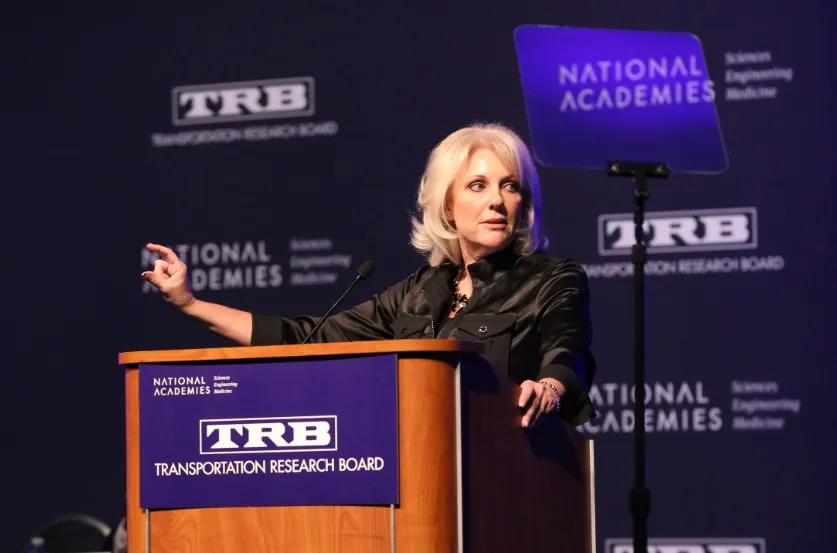
Roads are much more than simply physical infrastructure. They are essential for the betterment of humanity, said Dimitris Mandalozis in his plenary session opening statement on day one of the International Road Federation World Congress 2024 in Istanbul.
The IRF president set the tone for the three-day event, noting that collaboration between everyone whose business is roads is now more important than ever.
Mandalozis acknowledged the push for sustainable mobility and sustainable infrastructure is paramount for many road owners, designers and concessionaire companies. It is also driving innovation in road design and urban planning.
However, grandiose big city projects are one thing. What must not happen is better and more sustainable infrastructure for smaller cities and town – for those people who may be less well off – be forgotten in the drive for sustainability.
Most importantly, sustainable roads must lead to safer roads. His message was simple: “Say no to road deaths; say yes to sustainability and decarbonisation.”.
Abdulkadir Uraloglu, minister for transport and infrastructure in the Turkish government, also addressed the attendees, saying that government investment in infrastructure had greatly increased over the past two decades. This has allowed some of the highest value public-private financing in world. Roads, he said, must provide sustainability for not only the few but for everyone.
Robert de Groot, vice president of the European Investment Bank (EIB), said its investment in road infrastructure – typically up to 50% of a project – is set up to ensure the project is climate-adaptable, according to stringent EIB guidelines.
Decarbonisation and physical resilience of infrastructure are key to longer asset lifecycles. Innovation in road design, construction materials and data capture are now so far-reaching that there has to be much more leveraging of data to build tomorrow’s transport network.
In the end, says de Groot, “roads are about people” and should provide them with life-changing opportunities.
Adding to the theme that ‘we are all in this together’, Elizabeth Jones, senior transport adviser to the UK government’s Foreign, Commonwealth and Development Office, said no country is immune from the tragedy of road deaths. Globally, she said, the single biggest killer of people aged 5-29 years is road crashes in some form or another. She noted that in Africa, a 10% increase in transport infrastructure spending can account for a 23% increase in an economy – something that can pull a lot of people out of poverty.
Meanwhile, choosing electric vehicles can help in the quest for greater sustainability, said Mehmet Gurcan, chief executive of Togg, Turkiye’s first electric car maker. The company was founded as a joint venture by five Turkish companies in 2018. An assembly plant was opened in 2022 in Gemlik, next to Togg’s subsidiary Siro which produces the lithium-ion batteries.
Progress, said Gurcan, is being made in extending driving ranges for electric vehicles, as well as more - and faster - charging. But one of the biggest challenges now is to alter the mindset of vehicle consumers. Electric vehicles have different capabilities which requires owners to plan their trips differently from trips made by petrol-vehicles where a driver gets in and goes almost without thinking.
Gurcan also said that electric vehicle development, like today’s global automotive sector, is in a state of evolution. Development of the electric vehicle is like that of the mobile phone. The phone of 10 years ago looks nothing like - and works nothing like - today’s phones, which will probably look nothing like the phones a decade hence.
De Groot of the EIB also noted that, in a similar way, the concept of sustainability is not static but dynamic. Products, innovations and process that help sustainability goals today may not work in years to come and something new will evolve to replace the products, innovations and processes.
Whatever the future looks like, the fight against road deaths will continue, said Gurcan.
The sector has to acknowledge that it is in a “silent pandemic” when it comes to road deaths and collaboration at levels in the road sector, from private companies, research organisations and governments at all levels is the only way to reduce the deaths. To this end he urges everyone in the sector to attend safety conferences and he pointed to the 4th Global Ministerial Conference on Road Safety, to be held in Marrakech, Morocco, in February 2025.










